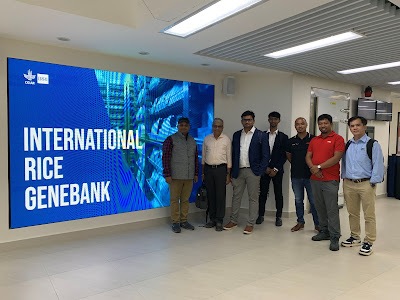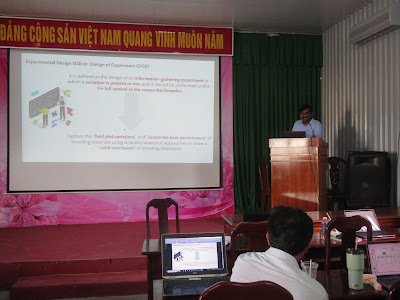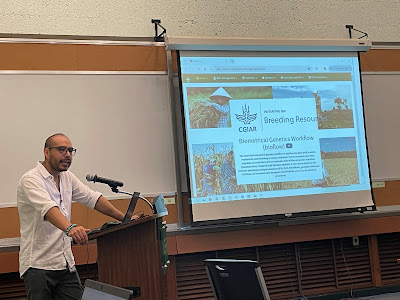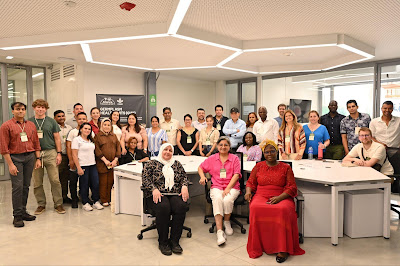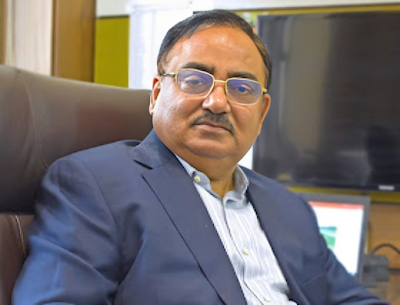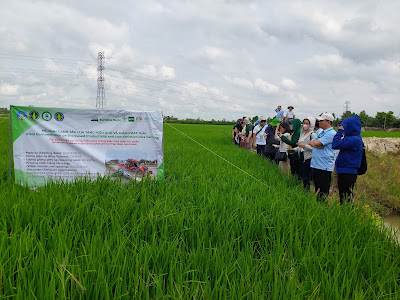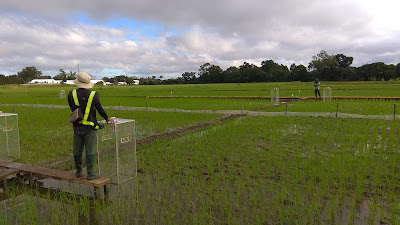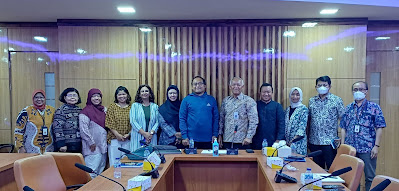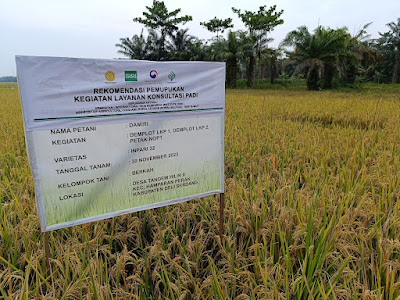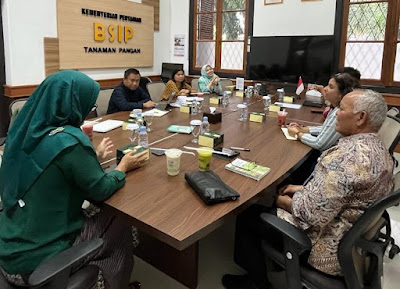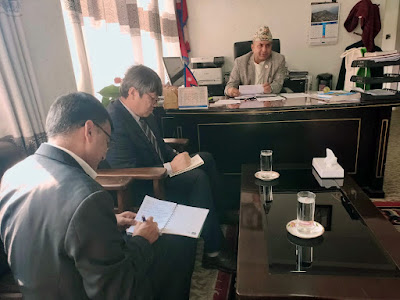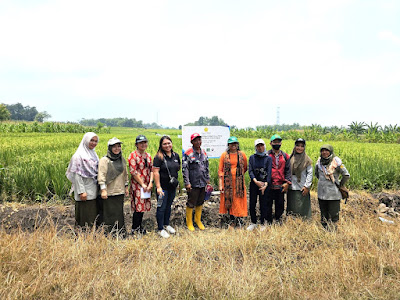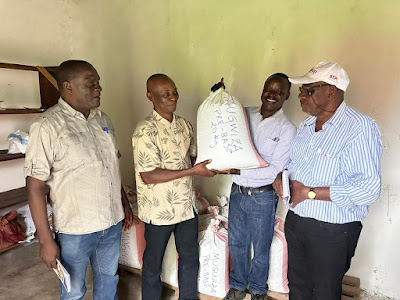Medan, Palembang, Jakarta and Bogor (1-8 March 2024) - As part of the International Rice Research Institute’s (IRRI) commitment to advancing agricultural innovation in Indonesia's rice farming sector, team members of IRRI’s Rice Crop Manager team from the Philippines, India, and Indonesia met with various national partners across North Sumatra, South Sumatra, and West Java to advance field evaluations, knowledge sharing, dissemination and usage of the digital tool by local farmers.
Rice Crop Manager, known locally as Layanan Konsultasi Padi or LKP, is an agricultural web application developed by IRRI to help rice farmers maximize yields and profit with personalized and actionable fertilizer management guidelines based on Site-Specific Nutrient Management (SSNM) principles. LKP version 2.0, launched in Indonesia last October 2023, is an upgraded application with an improved user interface, accessibility to field-level information, and an optimized questionnaire for the generation of field-specific crop management advice.
The meetings included technical discussions with Indonesian scientists from national agencies and visits to rice-growing areas within rainfed and swampy agroecological zones, in alignment with the government’s plan of increasing rice production in these areas.
The RCM team met with the National Research and Innovation Agency (BRIN) and Badan Standardisasi Instrumen Pertanian (BSIP) to discuss collaboration and support for the field evaluation component of the project and the ongoing upgradation of LKP, with a focus on swampy agroecological zones. Agreements were made to collaborate for knowledge sharing and increased number of field evaluation trials in swampy areas.
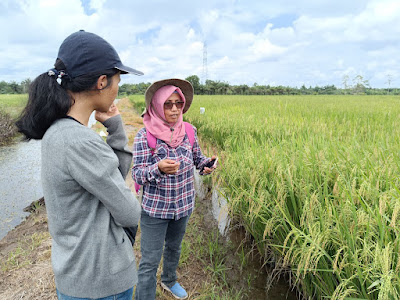
The team also met with the Badan Penyuluhan dan Pengembangan Sumber Daya Manusia Pertanian (BPPSDMP) Kementerian Pertanian / Agricultural Extension and Human Resource Development Agency of Ministry of Agriculture in Jakarta, to explore potential collaboration between IRRI's LKP and BPPSDMP's SIMLUHTAN, both digital tools designed to provide information to farmers and extension agents on good agricultural practices. While LKP offers site-specific nutrient and water management guidelines for rice production, SIMLUHTAN serves as a comprehensive platform for agricultural extension workers, facilitating data management and monitoring of extension activities, including subsidized fertilizer distribution. From the meeting, BPPSDMP concluded it will be beneficial to the extension agents and farmers if LKP is integrated with CYBEX.ID, the BPPSDMP-developed information system for sustainable agricultural extension.
Prof. Dr. Ir. Hasil Sembiring, MSc., IRRI Indonesia Liaison Scientist, elaborated the potential synergies between the two digital tools, saying “The potential collaboration between IRRI and the Director of Extension regarding these digital tools holds significant promise for the dissemination of agricultural technology. Extension workers, serving as frontline advocates for agricultural technology adoption and widely dispersed across Indonesia, play a crucial role in introducing new technologies to farmers. By providing extension workers with knowledge about LKP, there is a high likelihood that farmers will also adopt the LKP recommendations. This synergy has the potential to boost rice production and improve environmental sustainability.”
Another meeting of the RCM team was with the Badan Standardisasi Instrumen Pertanian Tanaman Pangan (BSIP-TP) / Agricultural Instruments Standardization Agency for Food Crops in Bogor. There were discussions on several key areas, including the status of ongoing trials in West Java and other provinces. Furthermore, discussion also included topics on LKP upgradation, dissemination, and monitoring and evaluation components. In particular, the user access levels for LKP version 2.0 were discussed in addition to the plans for the implementation of endline surveys.
The RCM Indonesia Project is being implemented by IRRI in collaboration with Indonesia’s Ministry of Agriculture - BSIP, and other local partners, with funding support from South Korea’s Ministry of Agriculture, Food and Rural Affairs.
###
Learn more about IRRI (www.irri.org) or follow us on social media and networks (all links down the right column).



.JPG)
